Newsletter 29 Jan 2024
Environment: What’s Up in GENeva | 29 January – 4 February 2024

The Geneva Environment Network’s weekly newsletter includes the latest information on the global environmental agenda, main events, job vacancies, learning opportunities, as well as other useful resources and updates. Stay tuned and follow us on X (Twitter), Facebook, LinkedIn, Instagram, and Youtube, or visit our website regularly for additional updates.
Image of the week | As part of Geneva Lux, a free festival of lights organized yearly by the City of Geneva, the installation “Mer sauvage” by Swiss artist Jonathan Valentin – inspired by big wave surfing – plunges the visitor into the tube of a giant breaking wave. → Find in our update more activities to enjoy a Green Winter in Geneva.
Launch and Panel Discussion | Global Criteria to Address Problematic, Unnecessary and Avoidable Plastic Products
The Geneva Beat Plastic Pollution Dialogues are resuming this week with the launch and panel discussion on the Nordic Council of Minsters’ report “Global Criteria to Address Problematic, Unnecessary and Avoidable Plastic Products“. The report aims to support the Intergovernmental Negotiating Committee (INC) to develop an international legally binding instrument on plastic pollution in shaping the plastics instrument through possible criteria for determining plastic products into three distinct classifications: problematic, unnecessary, and avoidable. These classifications are essential for developing control strategies specific to each and supporting the phase-out of these plastic products. The authors suggest options for how this can be achieved under the future global instrument to end plastic pollution by promoting alternate practices or non-plastic substitutes, and by redesigning essential plastic products for safety and sustainability. These core strategies should be based on criteria that are focused on product function, end-use, and essentiality. → Register on Webex and join the event on 1 February 2024 from 14:00 to 15:30 CET.
Next week, a new session of the Geneva Beat Plastic Pollution Dialogues, co-organized with the Forum on Trade, Environment & the SDGs (TESS) will provide governments and stakeholders with a holistic overview of options and pathways for mobilizing resources for effective treaty implementation, systems change, and the just transitions required to end plastic pollution. → Register on Webex to attend the event on 7 February 2024 from 15:30 to 17:00 CET
Geneva Conversations on the Environmental Cost of Weapons and Conflicts
Geneva is one of the most active centers of global governance and an operational hub for multilateral diplomacy, gathering a large pool of expertise, including in the field of disarmament and the protection of civilians in armed conflicts, thus offering opportunities to explore interlinkages with other workstreams such as the protection of the environment. This week, two sessions in Geneva will address the impact of weapons and conflicts on people and the environment:
- The Geneva Branch of the United Nations Office for Disarmament Affairs will dedicate the fifth session of the Geneva Disarmament Conversation Series to weapons and their environmental impact. The protection of the environment in armed conflict is an obligation for States under international humanitarian law. The use of weapons in conflict causes soil degradation and pollution. Toxic chemicals remain in the ground after the end of hostilities, constitute a health hazard for affected communities, and are a dangerous source of pollution for their water resources and food chain. Environmental considerations are of paramount importance in surveys, clearance, and stockpile destruction activities. While the discussion will focus on the environmental costs of weapons, it will also touch upon possibilities to further streamline this aspect into disarmament efforts. → Register to join the event on 30 January 2024 from 13:15 to 15:00 CET at Palais des Nations, Room XXV.
- The Special Procedures of the UN Human Rights Council, the Geneva Water Hub, and PAX will host a webinar, ‘The protection of civilians in Gaza: environmental injustice and human rights abuse‘ addressing the protection of civilians in the armed conflict in Gaza under human rights law. While addressing the status of the application of human rights law during armed conflicts, the webinar will discuss the long-term environmental impacts of the armed conflict in Gaza and their consequences on livelihoods, health, or food sectors. → Register on Zoom to join on 1 February 2024 from 15:00 to 16:30 CET.
Ambitious Action to Tackle and Prevent Climate Change and Pollution Impacts on Health
The 154th session of the Executive Board of the World Health Organization concluded last Saturday, discussing climate change, pollution, and health under agenda item 22, referring to the two reports issued by the WHO Director-General and a draft resolution:
- Climate change, pollution and health | Impact of chemicals, waste and pollution on human health (EB154/24) | The report was prepared pursuant to resolution WHA76.17 (2023) on the impact of chemicals, waste, and pollution on human health, requesting the Director-General to explore the full range of options for the future involvement of WHO in two processes launched at the 5th session of the United Nations Environment Assembly: the establishment of a science-policy panel to contribute further to the sound management of chemicals and waste and to prevent pollution and the development of an international legally binding instrument on plastic pollution, including in the marine environment.
- Climate change and health (EB154/25) | This report gives an overview of the health risks from climate change and the necessary response by the global health community to this threat. It describes the specific contributions currently being made by WHO in the field, and which it is proposed to further enhance in the transition to the Fourteenth General Programme of Work.
Member States delivered statements in support of ambitious actions and synergies to tackle these crises, which included:
- Switzerland delivered a statement on behalf of Canada, Costa Rica, Ecuador, El Salvador, México, Monaco, Norway, Panama, Peru, the EU and its 27 member states, and Switzerland, welcoming the Director-General’s report on “Climate Change, Pollution, and Health”, and its proposals to enhance WHO engagement in ongoing processes, and to further WHO action and take a more active role in global chemicals management to protect human health, including in the implementation of the Global Framework on Chemicals, adopted in Bonn, Germany in September 2023. Other recommendations include the update of the Chemicals Road Map, the realization of a Health Day in association with Plastic Pollution INC-4, to be held in Ottawa, Canada, and for the WHO Secretariat and WHO Member States to find creative funding mechanisms to address the health focus on environmental degradation and the adverse effects of climate.→ Read the statement
- Peru delivered a statement on behalf of the Kingdom of the Netherlands, Kenya, Fiji, Barbados, the United Kingdom, and Peru, the core group for the resolution on Climate Change and Health, and its co-sponsors Monaco and the United Arab Emirates. The resolution builds on the political momentum of the Health Day at COP28, committing WHO to concrete and bold actions on climate change. → Read the statement
Find out more in the article of Elaine Ruth Fletcher in Health Policy Watch — WHO Asks Member States: Join Talks on Global Plastics Treaty, Up Game in Climate Action for Health — issued on 27 January 2024.
Celebrate World Wetlands Day in Geneva and Beyond
World Wetlands Day, celebrated each year on 2 February, marks the date of the adoption of the Convention on Wetlands (Ramsar Convention) on 2 February 1971 in Ramsar, Iran. “Wetlands and Human Wellbeing” is the theme for World Wetlands Day 2024. This year’s campaign spotlights how interconnected wetlands and human life are — with people drawing sustenance, inspiration, and resilience from these productive ecosystems. Importantly, the theme for 2024 underscores how all aspects of human wellbeing are tied to the health of the world’s wetlands. It calls on each of us to value and steward our wetlands. Every wetland matters. Every effort counts.
As the headquarters of the Secretariat of the Ramsar Convention and of various international and non-governmental organizations active in nature protection, the Geneva region is an important hub of expertise and action for wetland conservation. Activities in Geneva to celebrate the day include events aimed at reconnecting people with nature and raising awareness of the importance of wetlands to our lives through the ecosystem services they provide. → Find more information about #WorldWetlandsDay and related activities
13 Recommendations to Boost Climate Action in Geneva
The Conseil pour le climat (Climate Council) of the Canton of Geneva, established in October 2021, released a report providing 13 recommendations to the Geneva State Council, on 23 January 2024. In accordance with the commitments made by the canton in the framework of its 2019 Climate Emergency Declaration and the Paris Agreement, the Climate Council stresses that the objectives of the Geneva Cantonal Climate Plan – 2nd generation – 60% less GHG emissions by 2030 and carbon neutrality by 2050, as well as those linked to adapting the region to the effects of climate change – are not achievable in the current state. It, therefore, recommends 13 key actions, from the establishment of an inter-cantonal scientific council to a waiver of carbon offsetting, and contribution to the financing or creation of a reparation fund in the context of international solidarity, and support for projects in Geneva that reduce indirect emissions and incentives to shift employment towards greener jobs.
Summit of the Future | Environment @ Pact for the Future
On 26 January 2024, Germany and Namibia, co-facilitators of the Summit of the Future, announced the release of the zero draft of the Pact for the Future. The draft is a starting point for intergovernmental deliberations this year and supports the adoption of an ambitious, concise, action-oriented Pact for the Future, per resolution 76/307. The Summit, taking place on 22-23 September 2024 in New York, is an opportunity to enhance cooperation on critical challenges and address gaps in global governance, reaffirm existing commitments including the Sustainable Development Goals (SDGs) and the United Nations Charter, and move towards a reinvigorated multilateral system that is better positioned to positively impact people’s lives.
The draft pledges to renew international cooperation on various matters that will put the world on a better path and support the well-being of present and future generations, including the environment. The Pact:
- reaffirms the principles of the Rio Declaration on environment and development and commits to accelerate ongoing efforts related to the environment;
- expresses the will to boost initiatives aimed at tackling the impacts of the triple planetary crisis of climate change, biodiversity loss, and pollution;
- aligns with the most recent advancements made at United Nations Climate Change COP28, calling for parties to accelerate the transition away from fossil fuels and committing to setting a deadline to eliminate fossil fuel subsidies; and
- stresses the importance of securing long-term capital and adaptation financial instruments to support the achievement of net zero emissions by 2050, especially targeting developing countries.
The next steps in preparation for the Summit in September have been included in a Roadmap circulated to delegations:
- The presentation of the zero draft takes place on Monday, 29 January 2024 from 10:00 to 11:30 EST (16:00 – 17:30 CET) at the Trusteeship Council Chamber and on UN Web TV. Delegations will be invited to make short general statements.
- The first reading, tentatively taking place from 6 to 9 February, will offer delegations the opportunity to provide general comments on the zero draft and proceed with a chapter-by-chapter reading. Member States and Observer delegations are invited to submit their written comments on the zero draft of the Pact for the Future by 12 February through e-deleGATE. A compilation text will be circulated before the second reading.
- The second reading will take place from 21 to 23 February, from 26 to 28 February, and from 4 to 6 March.
- The roadmap will be updated in March with information on the third reading.
Calls for Submissions
Various calls for submissions regarding human rights and the environment have deadlines coming up soon, including:
- The impact of loss and damage from the adverse effects of climate change on human rights
The Council has requested the Secretary-General to conduct and submit an analytical study on the impact of loss and damage from the adverse effects of climate change on the full enjoyment of human rights, exploring equity-based approaches and solutions to addressing the same. The deadline for submission is 31 January 2024. - Addressing the challenges and barriers to the full realization of the human rights of the people of the Marshall Islands stemming from the State’s nuclear legacy
The Council has requested OHCHR to prepare a report on addressing the challenges and barriers to the full realization and enjoyment of the human rights of the people of the Marshall Islands, stemming from the State’s nuclear legacy. The deadline for submission is 31 January 2024. - Study on “Laws, legislation, policies, constitutions, judicial decisions and other mechanisms in which States had taken measures to achieve the ends of the United Nations Declaration on the Rights of Indigenous Peoples, in accordance with article 38 of the Declaration”
The study aims to analyze laws, legislation, policies, constitutions, judicial decisions, and other mechanisms in which States had taken measures to achieve the ends of the United Nations Declaration on the Rights of Indigenous Peoples, in accordance with article 38 of the Declaration. The deadline for submission is 31 January 2024.
→ Consult other calls for submissions from various human rights mechanisms.
What (Else) to Read Next?
- Climate change, not El Niño, main driver of exceptional drought in highly vulnerable Amazon River Basin | World Weather Attribution | 24 January 2024
The river basin contains the largest rainforest in the world, making it a global hotspot of biodiversity and a key part of the global hydrological and carbon cycle. The river levels are reported to be at lowest levels in 120 years, threatening the estimated 30 million people living in the Amazon basin across several nations including Brazil, Peru, Colombia, Venezuela, Ecuador and Bolivia, by disrupting transportation, isolating communities and killing wildlife. - Global Forum on Migration and Development Addresses Impacts of Climate Change on Human Mobility | IOM | 24 January 2024
Last week Summit of the Global Forum on Migration and Development (GFMD) placed a special focus on the impact of climate change on human mobility, mirroring a key priority of the IOM. Clear evidence shows that climate change is fuelling disasters, and is the leading cause of new displacements globally, with an unprecedented 32.6 million new internal displacements in 2022. - Governments fail to agree timeline for climate science reports in fraught IPCC talks | Climate Home News | 22 January 2024
Governments have failed to agree on a timeline for the delivery of highly influential scientific reports assessing the state of climate change by the IPCC. That is after Saudi Arabia, India and China opposed attempts to ensure the scientific body would provide its assessment in time for the next global stocktake, the UN’s scorecard of collective climate action, due in 2028, according to sources present at the IPCC talks in Istanbul, Turkiye, last week.
- Davos diary: Eric Usher summarises the sustainable finance highlights from the 2024 summit | UNEP FI | 24 January 2024
On the winding train back from this year’s World Economic Forum Annual Meeting in Davos, UNEP FI Head, Eric Usher sums up the key takeaways for sustainability practitioners from this year’s global economic and political mountain retreat. - What is phosphorus and why are concerns mounting about its environmental impact? | UNEP Story | 24 January 2024
Phosphorus and another nutrient, nitrogen, are key ingredients in synthetic fertilizers. They have become increasingly popular in recent decades but can have devastating effects when they enter lakes, rivers and the ocean. At the upcoming UNEA-6 delegates are expected to discuss how to advance global cooperation around nutrients. In particular, they are slated to explore ways to rein in excess phosphorus in the environment without compromising efforts to end hunger building on work already done by Member States through past UNEA resolutions to decrease nitrogen pollution. - How “essential” are hazardous substances? | Industry is fighting to weaken new tool aimed at protecting health and ecosystems | Corporate Europe Observatory | 24 January 2024
Europeans are exposed to alarmingly high levels of harmful chemicals and pesticides that also harm ecosystems, soil, air, and water. But promises to tackle these substances via the Green Deal are being shelved. New evidence now reveals how Big Toxics and its allies have used misleading narratives to try to weaken the concept of ‘essential use’, to create regulatory loopholes for their hazardous products, and ultimately derailing the Commission’s flagship chemicals reform. - Progress on implementing the Kunming-Montreal Global Biodiversity Framework | Institute for European Environmental Policy | 24 January 2024
The briefing looks at progress regarding developments and support for implementation across all the targets, including resource mobilisation and the monitoring framework and mechanisms for reporting and reviewing, which are crucial to ensuring the GBF’s success. - Burkina Faso confirms interest in joining the Water Convention to improve management of its shared water resources in a context of increased climate change | UNECE | 23 January 2024
Burkina Faso is one of the Sahelian countries hardest hit by the effects of climate change, experiencing torrential rains and floods, as well as periods of insufficient rainfall. To help address these challenges, through adaptation, resilience and concerted, shared management of its water resources, Burkina Faso officially confirmed on 19 January 2024 its wish to accede to the Water Convention. - Palau Takes the Lead In The ‘Race For Ratification’ | High Seas Alliance | 22 January 2024
The High Seas Alliance applauded Palau for being the first to officially ratify the historic United Nations (UN) High Seas Treaty today and urged other countries to accelerate their efforts in the Race for Ratification.
- The planetary commons: A new paradigm for safeguarding Earth-regulating systems in the Anthropocene | Johan Rockström, Louis Kotzé, Svetlana Milutinović et al. | Proceedings of the National Academy of Science of the United States of America | 22 January 2024
We urgently need a new global approach to safeguard critical Earth system regulating functions more effectively and comprehensively. The global commons framework is the closest example of an existing approach with the aim of governing biophysical systems on Earth upon which the world collectively depends.
- What If the Clean Energy Transition Costs Much Less Than We’ve Been Told? | Inside Climate News | 18 January 2024
The global transition to clean energy has a cost, but it may be a lot lower than the figures that sometimes get thrown around. The differences are large, amounting to trillions and even tens of trillions of dollars. A new analysis from RMI, the clean energy research and advocacy group, identifies what its authors say is a basic flaw in many of those estimates: They don’t fully take into account the decrease in fossil fuel spending.
Events
See all
Body Meeting
Informal Open-ended Negotiating Group on Rules | Fisheries Subsidies
29 Jan 2024 10:00
WTO | Room CR
WTO


Cinema
Film Screening Demain | Regards sur l’état de la planète
29 Jan 2024 20:30
Cinémas du Grütli
Société de Lecture
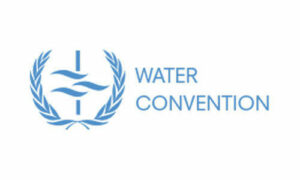
Body Meeting
35th meeting of the Bureau to the Water Convention
30 – 31 Jan 2024
Palais des Nations
Water Convention

Conference
Disarmament Conversation Series: Weapons and their environmental impact
30 Jan 2024 13:00 – 15:00
Palais des Nations | Room XXV
UNODA

Virtual
New Green Shoots 2024: Latest trends and innovations in nature finance
30 Jan 2024 14:00 – 15:15
Online | BrightTalk
UNEP FI

Conference
COP28 Outcomes: Addressing Climate Change Through Agrifood Systems
30 Jan 2024 15:00 – 16:15
Palais des Nations | Room H/3-313 - H.313
FAO

Body Meeting
49th meeting of the Working Group on Implementation
31 Jan – 01 Feb 2024
Palais des Nations | Room H.307
UNECE Convention on the Transboundary Effects of Industrial Accidents

Virtual
Environment, Climate, Conflict, and Peacebuilding (ECCP): UNEA Call
31 Jan 2024 11:00
Online | Teams
Geneva Peacebuilding Platform

Local
How on Earth will we reach net zero emissions? | Cycle Conferences “Notre Terre qui est enjeu”
01 Feb 2024 12:30 – 14:00
Société de Lecture
Société de Lecture

Virtual
Launch and Panel Discussion | Global Criteria to Address Problematic, Unnecessary and Avoidable Plastic Products
01 Feb 2024 14:00 – 15:30
Online | Webex
Nordic Council of Ministers, GEN

Virtual
The protection of civilians in Gaza: environmental injustice and human rights abuse
01 Feb 2024 15:00 – 16:30
Geneva Water Hub, Special Procedures of the UN Human Rights Council

Cinema
Film Screening Earth | Regards sur l’état de la planète
01 Feb 2024 18:30
Cinémas du Grütli
Société de Lecture

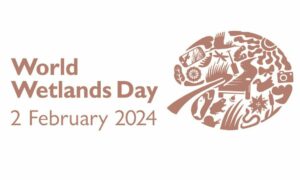

Virtual
Trade & Policy Dialogue: Key issues on the trade and environment nexus: Trade measures in Nationally Determined Contributions and trade in non-plastic material substitutes
02 Feb 2024 08:30 – 10:00
Online | Webex
UNCTAD

Body Meeting
Informal Open-Ended Committee on Trade and Environment
02 Feb 2024 10:00
WTO | Room S2
WTO

Body Meeting
Informal Open-ended Negotiating Group on Rules | Fisheries Subsidies
02 Feb 2024 10:00
WTO | Room S1
WTO
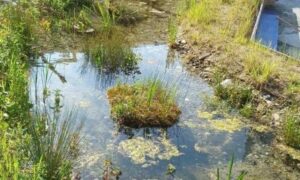

Conference
Pollution sonore liée au trafic routier et aérien: quels effets pour la santé?
02 Feb 2024 14:30 – 16:00
Maison Internationale des Associations (MIA)
UNIGE

Afterwork
Oiseaux rares et ornithologues | Activités gratuites pour célébrer les zones humides
04 Feb 2024
Republic and State of Geneva, La Libellule
Jobs
See all
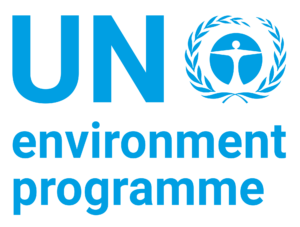




Updates
See all
26 Apr 2024
Towards Plastics Pollution INC-4
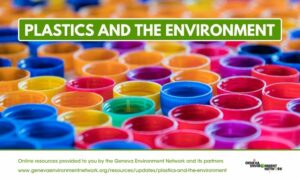
24 Apr 2024
Plastics and the Environment
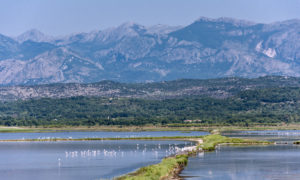
20 Jan 2024
Wetlands and the Role of Geneva



17 Apr 2024
